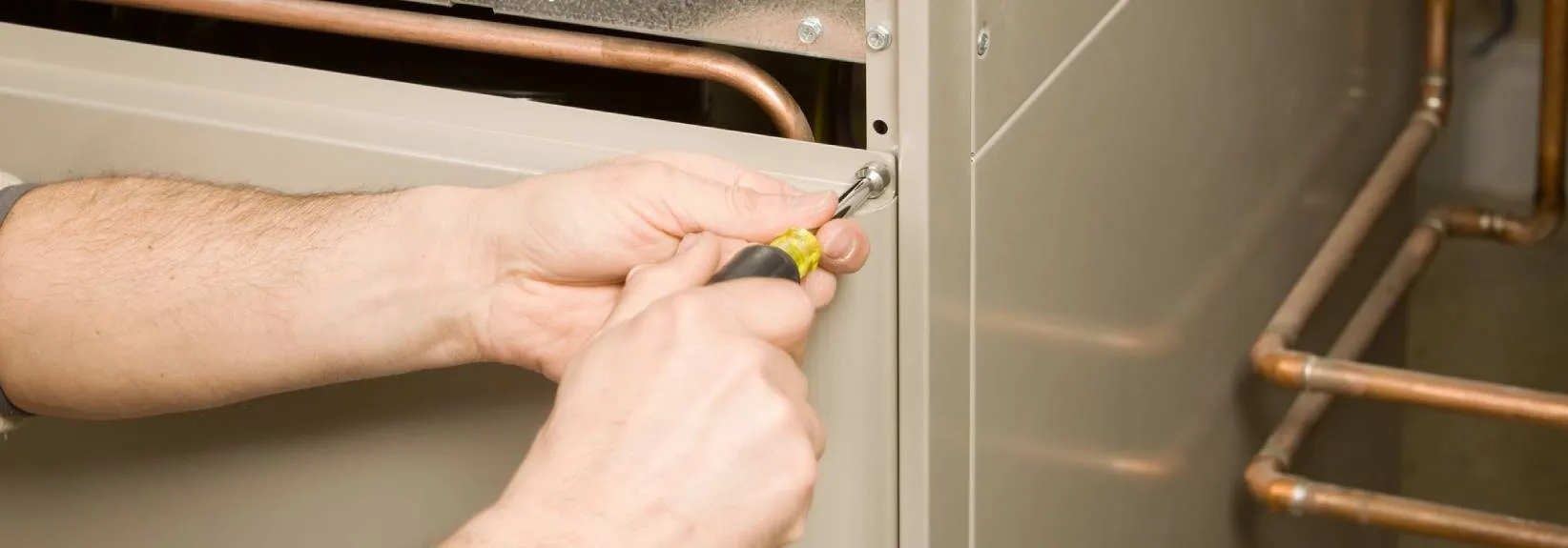If You’re in the Market for a New Furnace, Here’s Why You Should Be Looking at a Heat Pump
When you’re ready to replace your old furnace, don’t assume that a new furnace is the only option. This may be the go-to choice for most North American homeowners, but heat pumps are becoming increasingly popular. Still, the question remains: Is a heat pump your ideal heating system? Explore several compelling reasons to choose a heat pump, how this equipment compares to a traditional furnace and whether a heat pump is the ideal choice for your home comfort needs.
How Is a Heat Pump Different from a Furnace?
The underlying technology between a heat pump and a traditional furnace is inherently different. Furnaces burn combustible substances such as natural gas, oil or propane to generate heat. On the other hand, heat pumps use electricity and refrigerant to move heat. This core difference influences the equipment’s efficiency, environmental impact and versatility.
Modern condensing furnaces boast high annual fuel utilization efficiency (AFUE) ratings, which is understandably appealing. But this only relates to the furnace’s ability to convert fuel to heat—it won’t account for the entire energy footprint involved in the process of extracting, refining and transporting the fuel.
In comparison, a heat pump’s efficiency is measured by its heating seasonal performance factor (HSPF). While it’s challenging to compare these numbers at first glance, be aware that heat pumps typically outperform furnaces.
Top Reasons to Choose Heat Pump Installation
Here’s why more and more homeowners are considering a heat pump for their year-round heating and cooling needs.
1. Lower Energy Bills
The operating cost is the number one priority when deciding on a new home appliance. Furnaces are very efficient, but they max out at approximately 98% efficiency. On the other hand, heat pumps are capable of generating three times the heat energy than the electrical energy consumed throughout the process. In other words, heat pumps can be three times as efficient under ideal operating conditions. This cost-efficient performance leads to lower utility bills.
H3: 2. Eco-Friendly Heating
Your household’s environmental footprint could be more modest with a heat pump. While electric furnaces are available, traditional gas-fired furnaces run on combustible natural gas or heating oil, the production and distribution of which harms the planet. A heat pump operates without burning fuel, reducing your home’s environmental impact, particularly if you also have solar panels to produce cleaner electricity from the sun.
3. Heating and Cooling Capabilities
One of the most impressive features of a heat pump is its versatility. It’s an effective wintertime heater and doubles as your air conditioner during the summer. Thanks to a straightforward built-in switch, the heat pump reverses its operation and pulls out warm air from your home, just like a standard AC unit. This dual-purpose solution is highly desireable to many homeowners.
4. Quiet Operation
Heat pumps run more quietly than traditional furnaces as they don’t have to burn fuel to generate heat. No combustion means less noise, resulting in a calmer living space.
5. Easy Transition
If your home is already equipped with ductwork, transitioning to a heat pump is quick and straightforward. The air handler will end up where your furnace is currently located, and the outdoor unit replaces your air conditioner. It’s .
Are Heat Pumps Right for Everyone?
While heat pumps are impressive, they may not suit every situation. Heating efficiency declines in extreme cold, making heat pumps less effective in regions with long, cold winters. However, advancements in cold-climate technology are making heat pumps more viable in colder climates, so be on the lookout for models designed to work in such settings.
It’s also worth pointing out that the up-front cost of purchasing a high-quality heat pump is generally higher than a forced-air furnace. However, it means you don’t have to purchase an air conditioner. If both systems are noticeably less efficient, you may actually save money up front by swapping them with a heat pump. Plus, you’ll recover any investment cost through lower energy bills over time.
If your home doesn’t already have the required ductwork, installing it adds to your up-front costs. But furnaces need ductwork too, so this doesn’t necessarily lean toward choosing a furnace over a heat pump. In fact, ductless heat pumps are available for older homes and additions where ductwork isn’t present.
Lastly, a heat pump’s efficiency benefits start to fall off if you live in an area with exceptionally high electricity costs. You can offset this by installing solar panels, which generate electricity from the sun to power your heat pump and many other electrical systems.
Choose Enercare McKinley
Still not sure if a heat pump is the right choice for you? Consult Enercare McKinley, and our Experts can help you decide if a heat pump meets your heating and cooling needs. Then, whether you opt for a heat pump or a traditional furnace, we can put in your new system above and beyond your expectations. Contact us today to seek a free installation estimate.



